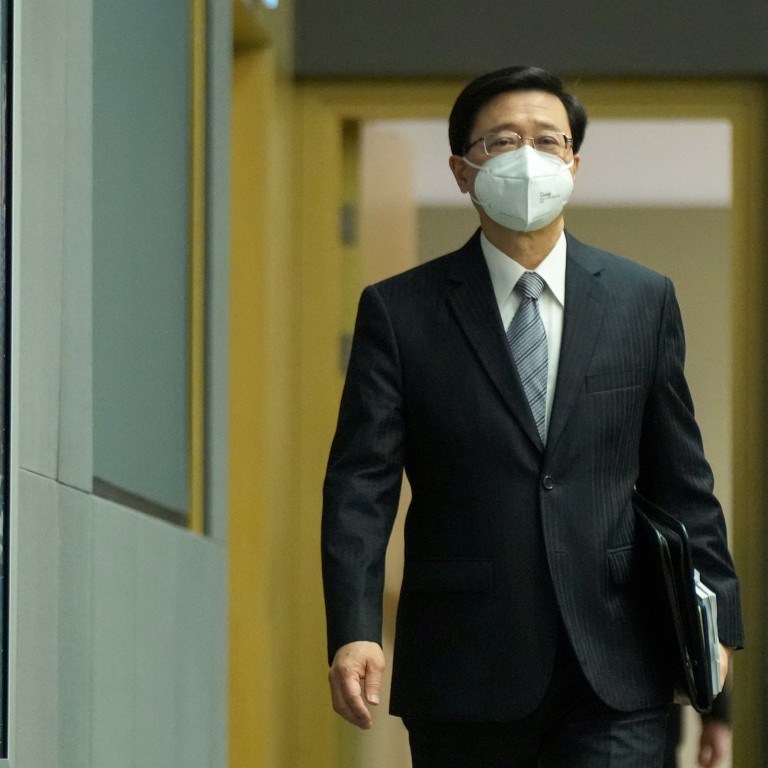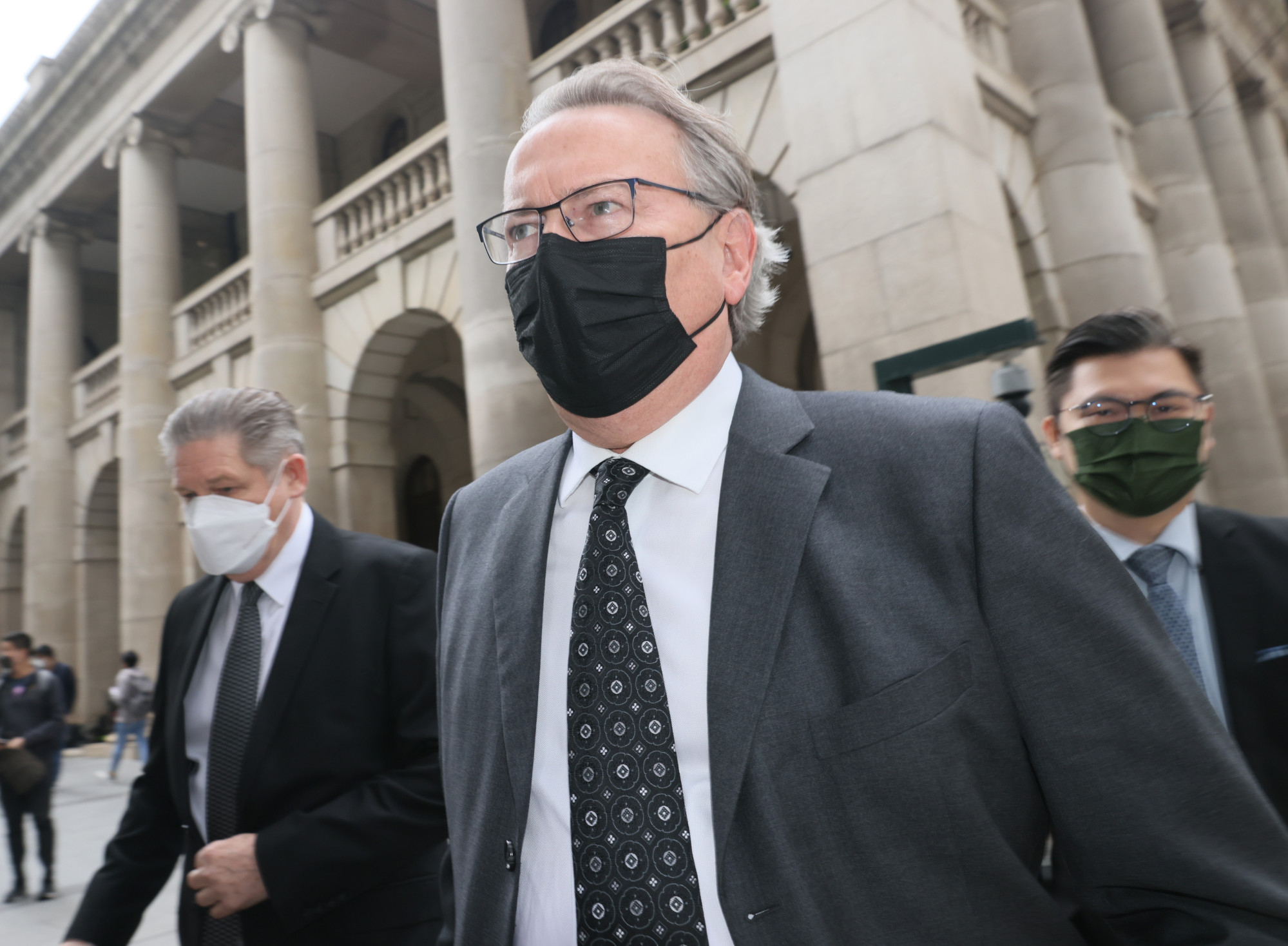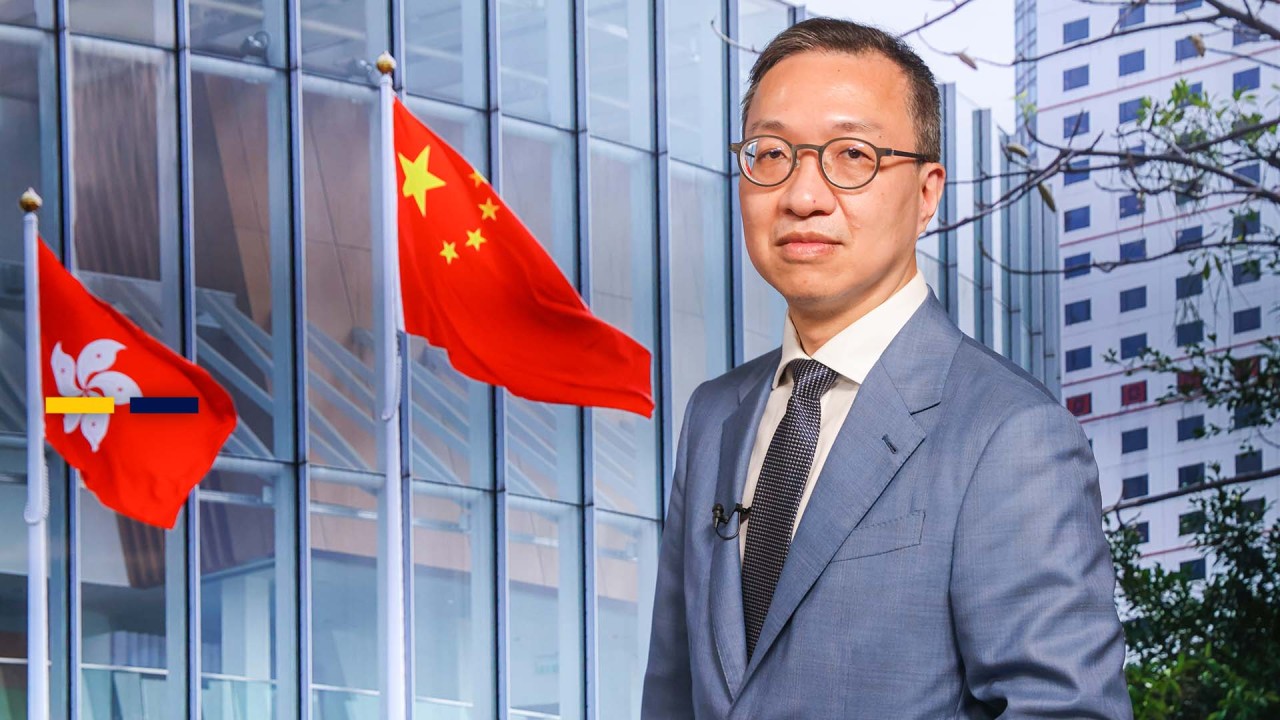
Beijing’s interpretation of Hong Kong national security law likely to be a one-off, sources say
- Sources say city’s leader and national security committee already have sufficient power to resolve disputes over use of foreign lawyers in sensitive cases
- But some experts warn Beijing’s ruling could affect perceptions of Hong Kong’s rule of law
Beijing is unlikely to interpret Hong Kong’s national security law again after its unprecedented intervention to end the foreign lawyer controversy triggered by media mogul Jimmy Lai Chee-ying, the Post has learned.
Sources earlier told the Post the city’s leader and oversight body the Committee for Safeguarding National Security had already been given enough power to resolve any future disputes.
But some legal experts warned the unchallengeable decision by China’s top legislative body could still have repercussions for the city’s implementation of the rule of law, as the ruling could be seen as an avenue for the local government to “dictate outcomes on critical issues before the court”.
The way the National People’s Congress (NPC) Standing Committee interpreted the security law on Friday caught some by surprise, as it left it to Hong Kong to decide whether a defendant in trials that involved national security should be allowed to use a foreign lawyer, rather than handing down an outright ban.

An insider from mainland China explained that the standing committee’s definition of two clauses of the Beijing-imposed law – Article 14 and 47 – was the middle-ground solution in an attempt to avoid the creation of negative perceptions of Hong Kong’s judicial independence that could arise from a heavy-handed resolution.
“Its reluctance to interpret the national security law at some points could be reflected by earlier remarks by certain politicians who had floated that this was only an option,” the source said.
Basic Law Committee member and legislator Priscilla Leung Mei-fun last month said Beijing could resolve the matter without issuing a ruling.
Leung on Monday said Beijing’s move showed it had “full trust” in the Hong Kong government and the national security committee, as well as demonstrated its respect for the “one country, two systems” governing principle, she said,
It also showed Beijing’s political wisdom as the central government chose not to directly address a specific local legal issue but instead confirm the power Hong Kong held to deal with such incidents, she added.
Beijing hands Hong Kong final say on allowing foreign lawyers in security trials
Chief Executive John Lee Ka-chiu sought Beijing’s interpretation after Hong Kong’s top court ruled in favour of Lai, founder of the now-closed Apple Daily newspaper, to hire a prominent lawyer based in Britain to defend him. Lai has denied three collusion charges under the security law and a sedition offence under the colonial-era Crimes Ordinance.
The mainland source added that Beijing’s elaboration on the duties of the Committee for Safeguarding National Security made it “unlikely and unnecessary” that the top legislative body would carry out any further interpretation of the law.
“The interpretation already ensured sufficient authority for the chief executive and the body he oversees by doubling down on local courts’ obligation to seek certificates from him when dealing with all sorts of future disputes involving national security,” it said, referring to Article 47.
The standing committee declared in its elaboration on Friday night that the oversight body had the power to make “judgments and decisions” on questions related to national security under Article 14, and that they were “enforceable in law”. Hong Kong’s courts will also “respect and implement” its decisions.
These terms are not found in the text of the security law that took effect in the city in June 2020, after months of anti-government protests.
Tam Yiu-chung, Hong Kong’s sole delegate to the standing committee, also said he saw no need for Beijing to interpret the national security law again after it had spelled out the mechanism for how the chief executive and the Committee for Safeguarding National Security could handle the issue of overseas lawyers at local trials and other similar concerns
“My view is that it has told you the way to deal with it and related issues in the future,” he said. “Hong Kong may not need to go back to ask again next time. It is much better than giving a yes or no reply to a specific question.”
Tam also dismissed speculation Beijing had not wanted to interpret the national security law in the first place, saying no central government official had come out and said a ruling was unnecessary.
Basic Law Committee vice-chairman Maria Tam Wai-chu said if the court and the committee disagreed on whether a certain case involved national security, the chief executive would have the power to decide by issuing a certification. Given the process was an administrative one, the court would not be denied its independent powers of adjudication.
But Ling Bing, a Chinese law specialist at the University of Sydney, told the Post he feared it was not clear by what procedure and in what form the oversight body would make “judgments and decisions”, explaining it had an “overriding authority” above the city’s executive, legislative and judicial bodies.
“Hong Kong is to be governed by a decision-making body that works secretively and whose decisions are not to be challenged in court. The repercussions on Hong Kong’s rule of law are clearly far-reaching,” he said.
Hong Kong eyes legal change ‘in months’ to ban UK lawyer from Jimmy Lai trial
Michael Davis, formerly of the law school at the University of Hong Kong (HKU), said he viewed the interpretation as creating further avenues for the local government to “dictate outcomes on critical issues before the court”.
“The court will now face the prospect of a committee overruling it if it does not rule in favour of the prosecution when national security is raised,” he said.
“That will surely weigh heavily on every decision where national security issues are raised by the government.”
Davis also warned of repercussions for the rule of law and free expression stemming from “expanding and strengthening” of the government’s powers.
But Professor Albert Chen Hung-yee, a constitutional law expert at HKU, reiterated the interpretation did not give the chief executive more power, but just explained the power the city’s leader and the oversight committee had under existing provisions.
Hong Kong minister defends Beijing’s ruling on suitability of overseas lawyers
Lau Siu-kai, a consultant at Beijing’s semi-official think tank, the Chinese Association of Hong Kong and Macau Studies, said he believed the ruling by the city’s top court that allowed British King’s Counsel Timothy Owen to appear for Lai had sparked concern in Beijing over the “will and ability” of Hong Kong to safeguard national security.
“I am of the view that Beijing is surprised and nonplussed by the fact that the Hong Kong government is not able to fully utilise the comprehensive powers bestowed on it by the national security law,” he said.
“Through interpretation of the law, Beijing expects the Hong Kong government to fully utilise the law to safeguard national security and not bother Beijing again on the matter.”
Additional reporting by Sammy Heung



